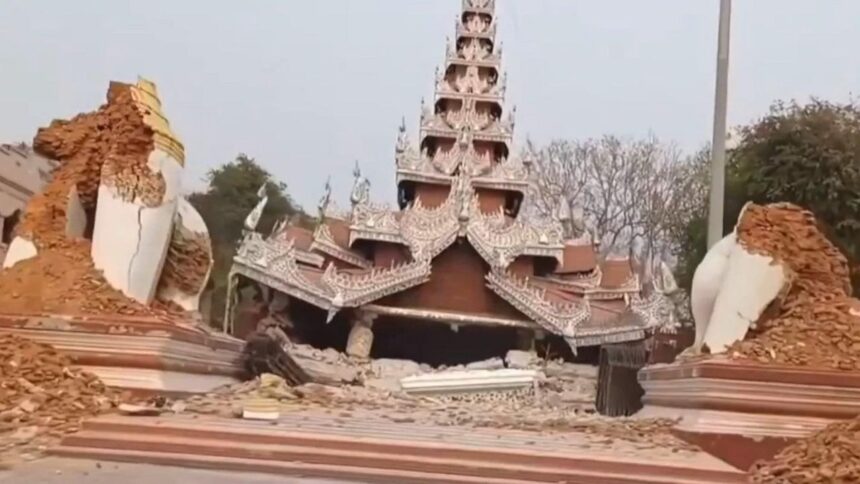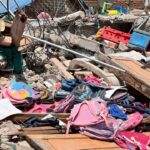Myanmar is in the midst of a week-long national mourning period following a devastating 7.7-magnitude earthquake that struck the central region on Friday. The disaster has resulted in over 2,000 confirmed fatalities, with officials warning that the number could rise significantly as rescue operations continue.
The earthquake’s epicenter was near Sagaing Township, causing widespread destruction in cities such as Naypyidaw and Mandalay. Critical infrastructure, including hospitals, residential buildings, and even the presidential palace, suffered severe damage. The collapse of these structures has left thousands without shelter, food, and water, exacerbating the humanitarian crisis in a nation already grappling with ongoing civil conflict.
In neighboring Thailand, the earthquake’s tremors led to the collapse of a skyscraper in Bangkok, resulting in at least 20 deaths and prompting the evacuation of thousands from compromised structures. Rescue teams are working tirelessly to locate survivors amid the rubble, though hopes diminish as time passes.
Rescue efforts in Myanmar are being hampered by fears of aftershocks and the extensive damage to transportation networks, which have made access to affected areas challenging. Many residents are sleeping outdoors, wary of returning to damaged buildings. International aid organizations, including the United Nations and the International Rescue Committee, have highlighted the urgent need for clean water, sanitation, and temporary shelters to prevent the outbreak of disease.

Complicating relief efforts, Myanmar’s military junta faces criticism for allegedly obstructing humanitarian aid deliveries. Reports indicate that aid supplies have been confiscated, and access to disaster-hit regions, particularly those not fully under military control, has been restricted. Despite the catastrophe, the military continues to carry out airstrikes against pro-democracy groups, drawing condemnation from international agencies and human rights organizations.
The earthquake has compounded an already dire humanitarian situation in Myanmar. The country has been embroiled in civil unrest since a military coup in 2021, leading to widespread displacement and infrastructure challenges. The recent disaster has further strained the nation’s capacity to respond to emergencies, highlighting the critical need for resilient infrastructure and disaster preparedness.
International aid has begun to arrive, with rescue workers, sniffer dogs, and paramedics deployed to assist in search and recovery operations. However, the effectiveness of these efforts is contingent upon unimpeded access to affected regions and cooperation from local authorities. The international community continues to call for unobstructed aid delivery and a focus on saving lives amid the ongoing crisis.
As Myanmar observes a moment of silence today at 12:51 local time—the exact time the earthquake struck—the nation reflects on the immense loss and the challenges ahead. Communities are coming together to support one another, demonstrating resilience in the face of adversity. The road to recovery will be long and arduous, requiring sustained domestic and international efforts to rebuild and heal.
The full extent of the disaster remains unclear, particularly in isolated areas that have yet to be reached by rescue teams. The coming days will be critical in assessing the damage, providing aid to survivors, and preventing further loss of life. The international community stands in solidarity with the people of Myanmar during this challenging time, emphasizing the need for coordinated relief efforts and long-term support.
In the wake of this tragedy, there is a renewed call for strengthening disaster preparedness and building resilient infrastructure to mitigate the impact of future natural disasters. The earthquake serves as a stark reminder of the vulnerabilities faced by nations in seismically active regions and the importance of proactive measures to protect lives and livelihoods.
As the nation mourns, the focus remains on providing immediate relief to those affected, ensuring that aid reaches all communities in need, and laying the groundwork for a comprehensive recovery and rebuilding process. The resilience and solidarity of the Myanmar people will be instrumental in overcoming the challenges that lie ahead.







